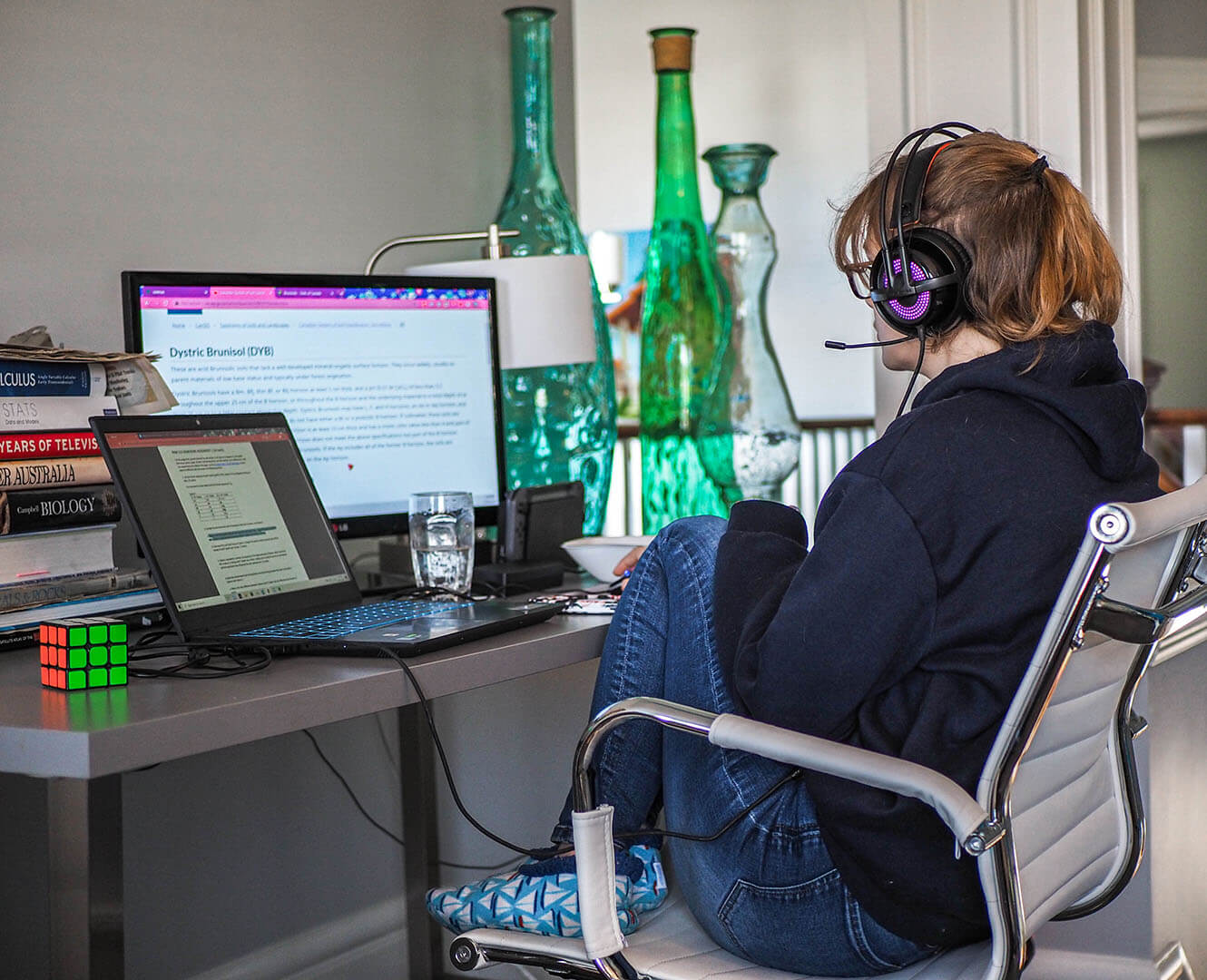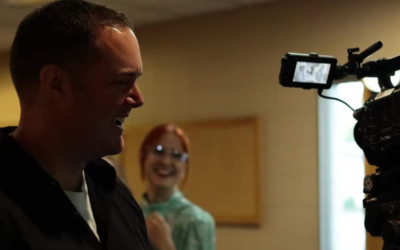I miss the days of sticking around after class to chat with an instructor about life, grabbing drinks at the Nest with classmates, or giving people smiles as I roam the halls of campus. It’s a different world now.
Last semester, I knew the faces of eight of my classmates. This semester, it’s three. In a WebEx or Teams setting where we’re told to keep our mics and webcams off to conserve bandwidth, college has lost that crucial networking piece.
I’m in the business program now, having previously graduated from the television program here at NAIT in early 2020.
I distinctly remember one of the radio instructors, Dave Sawchuk, telling us: “Get to know these people around you; it’s a small world. Of the 35 people in this room, one of them will hire you, one of them will fire you, one will give you a job recommendation and one will tell their boss not to hire you.”
When I look around my class today, I see names and initials.
So it was relieving to get an email from the business program about another Undercover Bosses event, an event held each semester by the business program where industry professionals meet in a semi-anonymous environment to interview students in an incredibly relaxed format.
You see their name, their face, and get to chat with them about the kind of work they do, what student positions they’re looking to fill and what kind of candidate they’re looking for. At the same time, they see your name, your face, learn about you, your passions, your skills and your goals – and this all happens in tiny breakout rooms with 2-4 people.
The catch? You have no idea where these people actually work.
It’s an event that I’ve loved, but I was surprised to see no more than 70 people in attendance this time, between the organizers, bosses, NAIT instructors and students.
Business events organizer, Alexandra Armstrong, said they have no shortage of industry partners looking for students to network with, but actually getting these students to attend has been the biggest challenge.
“We put it out there and try to encourage them to let the instructors know to let the students know, but I understand, they are burned out and the idea of sitting in on yet another two-hour virtual platform is just nothing they want to do,” said Armstrong.
Zoom fatigue has been an issue this year, and admittedly, Undercover Bosses has been the only online event that I’ve been to this year. There’s something about sitting in a chair and staring at a screen that is more tiring than speaking with someone face-to-face.
We’re also at a point in the semester where students are busy with midterms and larger projects, and where the initial excitement and curiosity of a new semester has worn off.
“But when you get in front of them enough to say, ‘But do you have a summer job lined up? Do you have an opportunity that’s going to take you past graduation?’ you can usually get a little bit more interest. But right now [students] are tired. Zoom fatigue is one thing, but just general fatigue is what people are dealing with right now,” said Armstrong.
Do you hold these events earlier in the year and have an incredibly front-heavy semester? Are there ways to increase motivation? Or is this just how the new online environment is?
“It is a balancing act to try to balance where you put the events, how to market them so students are engaged, and to catch them at a time when they’re still really interested,” said Armstrong.
While students may not be incredibly motivated to attend these extra events or spend hours extra per week messaging people on LinkedIn or trying to book meetings with instructors and industry professionals, there are small things you can do to find those little connections.
Hanging around for a few minutes after class is a very easy way to start – and it mirrors what would happen in a traditional classroom. The few times I’ve done this have led to some fantastic career advice and some small day-making conversations. I’m sure your instructors would appreciate it too.
“Talk to your instructor and find out who they recommend you should talk to in industry. That’s a good jumping-off point because they probably have a lot of alum. And you can go to any industry that has hired from NAIT in the past and they will be interested in talking to you,” recommended Armstrong.
“But the thing is, it’s not going to land in your lap. You’ve got to do the digging because dropping resumes into the black hole of job applications is not necessarily the best way to go.”
There is also a platform called Ten Thousand Coffees meant to connect students, alumni and other industry professionals. The system pairs two people up every four weeks and you can choose to email, message each other through the website, or set up a video chat. I made a few good connections with alumni through that platform last summer. There is also no obligation to talk to anybody you match with. You’ll just get a new pairing four weeks later.
And then there’s always the traditional email, LinkedIn or Instagram messaging options that have been around for a while.
At the end of the day, as Zoom-fatigued as I may be, these little conversations and connections can make my week… or earn me a summer job.





